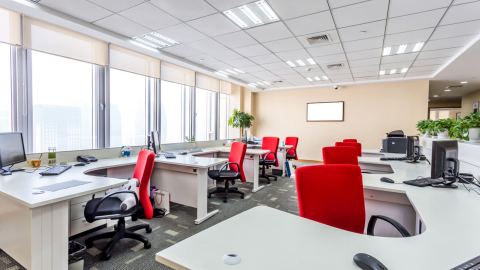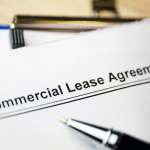A Tenant’s Guide to Leasing a Commercial Property
Signing a commercial lease represents an important commitment throughout the course of several years. So, naturally, prudent business owners need to cover all the bases before signing on the dotted line. To that end, below is a guide that will help you avoid some of the most common pitfalls that commercial real estate tenants tend to experience during the leasing process.
Start Your Search as Early as Possible
Finding an adequate office space for your business takes time — and, most likely, it’s going to take even more time than you initially estimated. For instance, even after you’ve located a space that matches your expectations, you’ll still have to factor in the time it takes to draft and negotiate a lease agreement; carry out due diligence; and, quite possibly, remodel or renovate the space before you can move in.
What’s more, having to do all of this when the expiration date of your current lease is just around the corner is not fun. So, start early and give yourself plenty of wiggle room so you don’t get caught off guard when things take longer than expected.
As a general rule of thumb, businesses looking for more than 10,000 square feet of office space should start searching for a new location roughly nine months before their existing lease expires. Plus, larger tenants can have very specific and complex requirements for their future workspace — which makes it necessary to allot even more time to finding the right place.
Similarly, when it comes to lease renewals, the advice to start early still stands. That’s because tenants will lose any leverage they may have if they postpone negotiations until two or three months before the expiration date, as the landlord will know that they won’t have time to look for alternatives.
Evaluate Your Office Space Needs
Businesses are anything but static. Therefore, it follows naturally that what they require in terms of their workspace is going to change — sometimes during the span of a couple of years. This means that a certain flexibility is a must when it comes to selecting a new lease.
For example, location is often touted as being of the essence when it comes to finding the right office space. But, there are also many other aspects to consider. Specifically, while a particular office space might be ideal for the company at present, would there be room for any future expansion? Tenants might also want their workspace to reflect their company’s values and image. As such, certain on-site amenities might be necessary to attract and retain specific talent.
So, draw up a checklist, highlight the features you absolutely cannot do without, and consider any perks that you can secure as you tour different properties.
Hire a Team of Experts
Unless you run a business that revolves around the commercial real estate industry, it’s very likely that your prospective landlord will have more experience crafting leases and conducting negotiations than you. For this reason, hiring a tenant broker is a vital step in securing both the expertise and experience necessary to negotiate a fair deal. In particular, brokers have market knowledge and insights into upcoming trends that can help you select the best space for your company’s image and aspirations.
Additionally, businesses might also call upon the services of an architect and/or an engineer to help define space needs, as well as a commercial real estate attorney to review lease clauses.
Do Your Commercial Property Due Diligence
Regardless of the building they plan to eventually move into, tenants should do a thorough evaluation to avoid any late surprises or major inconveniences down the line. This can also save your company a lot of money on repairs. For instance, it’s important to inspect the mechanical infrastructure — especially in older buildings — as well as the HVAC system. Also, make sure safety codes are met and that the building is compliant with the Americans with Disabilities Act (ADA).
Don’t Be Afraid to Negotiate
From tenant improvements to moving allowances, businesses have a range of clauses that they can consider during negotiations. For example, because a company’s office space requirements can change throughout the years, options to expand, terminate, downsize or sublease should be explored.
Likewise, commercial leases typically include a “base rent” and “additional rent.” The base rent refers to the price paid per square foot throughout the term of the lease, whereas additional rent is a catch-all term for any other costs incurred by the tenant, with operating expenses being one of the most significant costs. You can also use the negotiation process to discuss your pro-rata share, the list of expenses you’re willing to pay for, as well as any caps.












